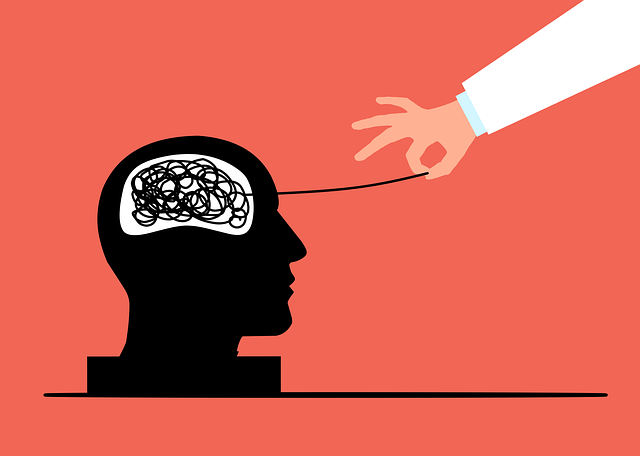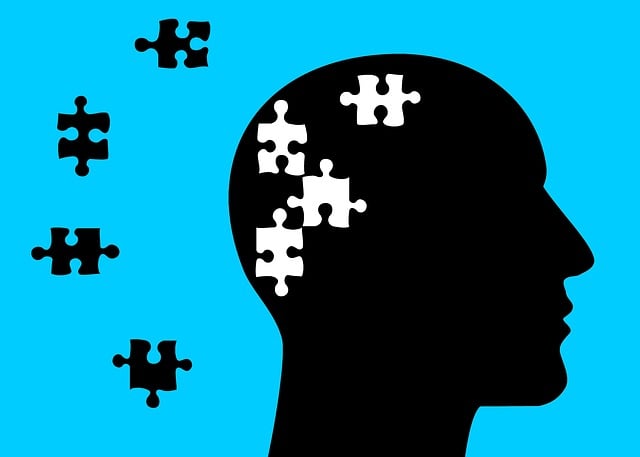Mindfulness meditation is a powerful tool for managing ADHD/ADD, offering improved focus, impulse control, and emotional resilience through personalized techniques. Integrated into comprehensive treatment plans at Englewood ADD-ADHD Therapy, mindfulness practices reduce symptoms, enhance decision-making, and promote positive thinking, contributing to mental illness stigma reduction and improving quality of life. Starting a mindfulness practice with dedicated space, guided meditations, or apps leads to better stress management, emotional regulation, and present-moment awareness, positively impacting daily life and social interactions. Englewood ADD-ADHD Therapy provides resources for culturally sensitive mental healthcare, fostering resilience to navigate challenges with clarity.
Discover the transformative power of mindfulness meditation with our comprehensive guide, tailored for individuals living with ADD-ADHD in Englewood. This article offers practical advice on how to harness the benefits of mindfulness, from understanding its fundamentals to establishing a thriving practice. We explore effective techniques, provide tips for daily integration, and highlight the positive impact on focus and overall well-being. Embrace a calmer mind and improved productivity through these proven strategies, accessible for everyone seeking Englewood ADD-ADHD therapy in their meditation journey.
- Understanding Mindfulness Meditation for ADD-ADHD
- Setting Up a Successful Meditation Practice
- Techniques and Exercises for Effective Session
- Incorporating Mindfulness into Daily Life
Understanding Mindfulness Meditation for ADD-ADHD

Mindfulness meditation has emerged as a powerful tool for individuals living with Attention Deficit Hyperactivity Disorder (ADHD) or Attention Deficit Disorder (ADD). This ancient practice, which encourages focused awareness and non-judgmental presence in the moment, can significantly enhance symptoms management. For those grappling with ADHD/ADD, mindfulness offers a way to cultivate better focus, improve impulse control, and develop heightened self-awareness—all of which are essential components in the journey towards mental well-being.
In the context of Englewood ADD-ADHD Therapy, mindfulness meditation serves as a practical strategy within comprehensive treatment plans. By integrating this practice into daily routines, individuals can experience reduced symptoms, improved decision-making abilities, and enhanced emotional resilience. Moreover, mindfulness practices contribute to Mental Illness Stigma Reduction Efforts by promoting positive thinking and building resilience—key factors in navigating the challenges associated with ADHD/ADD. Through dedicated practice, one can learn to embrace moments of stillness amidst the chaos, thereby fostering a deeper connection with oneself and improving overall quality of life.
Setting Up a Successful Meditation Practice

Starting a mindfulness meditation practice is an investment in your mental and emotional well-being, offering a powerful tool for managing stress, enhancing focus, and cultivating inner peace. To set up a successful routine, begin by carving out a dedicated space free from distractions. A quiet room with comfortable seating can become your sanctuary, allowing you to fully immerse yourself in the practice. Consistency is key; aim for regular sessions, even if they’re brief, to train your mind and establish a habit.
Englewood ADD-ADHD Therapy recommends incorporating mindfulness into your daily routine through structured practices. Consider guided meditations or apps designed to assist beginners. These tools can help you learn breathing techniques, visualize calming scenarios, and develop a deeper understanding of your thoughts and emotions. With regular practice, you’ll begin to notice improvements in your ability to manage stress, regulate emotions, and enhance your overall sense of calm—benefits that extend beyond meditation, positively impacting your daily life and social interactions.
Techniques and Exercises for Effective Session

Effective mindfulness meditation sessions rely on a combination of specific techniques and exercises tailored to individual needs. Starting with simple breath awareness exercises can help center the mind and body, fostering a sense of calm. Gradually, practitioners can explore body scans, where attention is directed to different parts of the body, promoting present-moment awareness and emotional regulation. Additionally, mindfulness walking involves attentively navigating surroundings during a walk, enhancing mind-body connection and cultivating a deeper appreciation for the immediate environment.
For those seeking guidance in their practice, Englewood ADD-ADHD Therapy offers valuable resources. Incorporating cultural sensitivity in mental healthcare practice ensures inclusive support, acknowledging that mindfulness can be adapted to suit diverse backgrounds. By focusing on emotional regulation through mindful practices, individuals gain tools to navigate stress and challenges with enhanced clarity and resilience, aligning with the fundamental mind over matter principles of mindfulness meditation.
Incorporating Mindfulness into Daily Life

Incorporating mindfulness into daily life is a powerful way to cultivate presence and reduce stress, offering significant benefits for individuals seeking Englewood ADD-ADHD Therapy. Start by setting aside just a few minutes each day for practice. Simple mindfulness exercises like focusing on your breath or scanning your body can help anchor you in the present moment. These practices enhance self-awareness exercises, enabling better understanding of your thoughts and emotions without judgment.
As you integrate mindfulness, look for opportunities to apply it throughout your day. Whether eating a meal, walking, or engaging in routine tasks, pay conscious attention to your senses and experiences. This mindful approach not only deepens your connection with the present but also fosters resilience in navigating challenges, including trauma support services. Public awareness campaigns development emphasizes the power of mindfulness as a tool for overall well-being.
Mindfulness meditation, as explored in this guide, offers powerful tools for managing ADD-ADHD symptoms. By understanding its benefits and implementing practical techniques, individuals in Englewood ADD-ADHD therapy can enhance their focus, reduce stress, and improve overall well-being. Incorporating mindfulness into daily life allows for a more balanced and peaceful existence, fostering personal growth and success.









